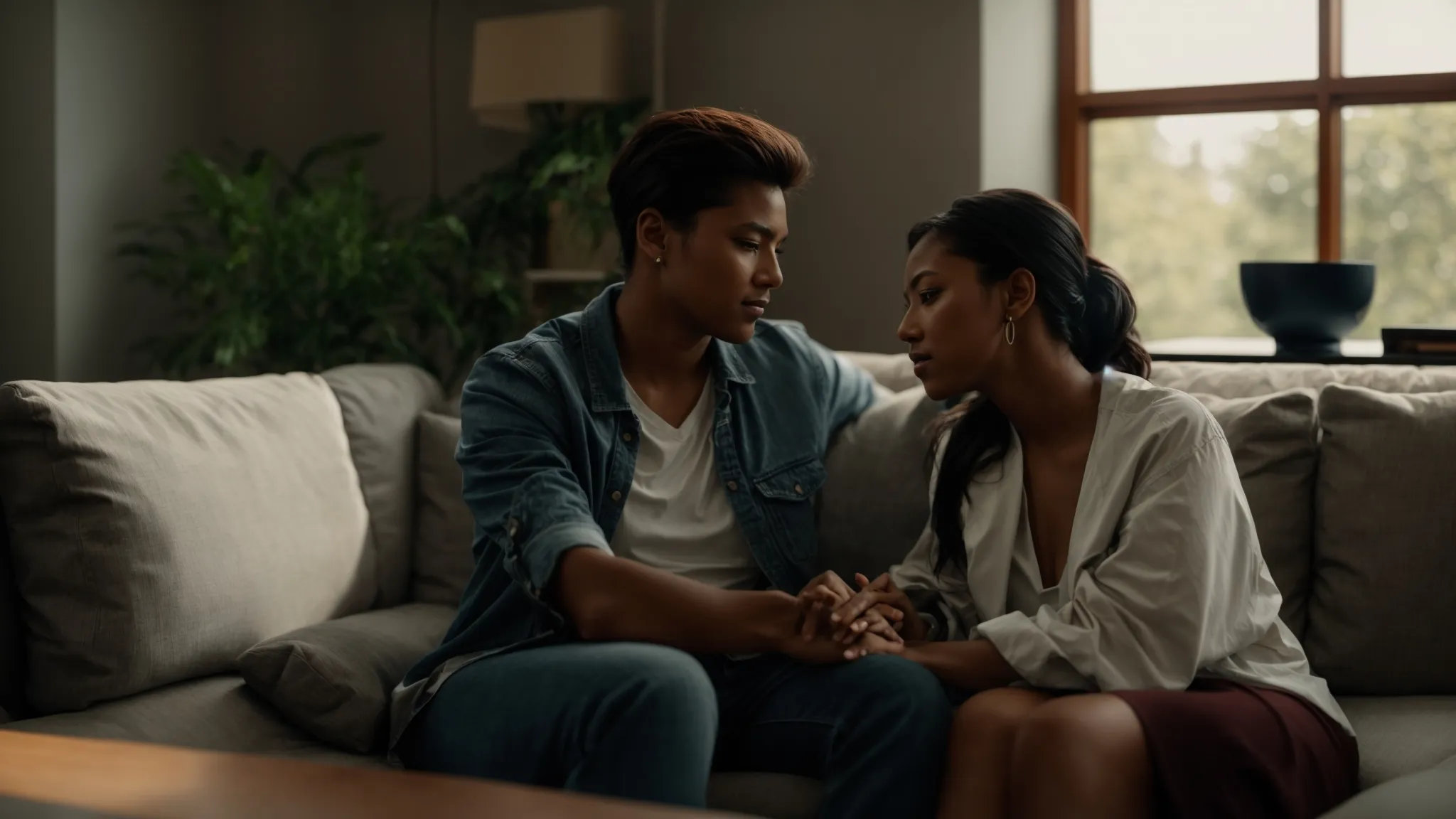When Communication Breaks Down: Understanding the Benefits of Couples Therapy
Communication is the lifeline that maintains the health of any relationship. When partners find themselves embroiled in misunderstandings, it’s often a signal that the communication has become muddled or strained. Navigating through these rocky periods can be challenging, and without the right tools, a couple may struggle to reconnect on their own. Couples therapy is a powerful step towards positive change and recovery in a relationship’s communication dynamic. Below, we explore how therapy helps, what techniques it utilizes, and the outcomes that can be anticipated from such a collaborative and poignant journey.
The Role of Couples Therapy in Resolving Communication Issues

Couples therapy serves as a neutral ground where partners can learn to articulate their feelings and needs without the fear of judgment or immediate confrontation. Therapists use various strategies to facilitate healthier conversations and offer perspectives that the individuals in the relationship might be missing.
Therapy creates a safe space for both parties to voice their concerns. It is a process guided by compassion and professionalism, where a therapist acts as a mediator to help identify and break through communication barriers. The therapy sessions are structured to encourage openness, honesty, and vulnerability, which are critical elements for effective communication.
Furthermore, therapy for relationship difficulties, such as the therapy for relationship difficulties in Toronto by Inner Summits, equips couples with the tools and techniques to utilize outside of sessions. This includes learning how to listen actively, express thoughts without aggression, and negotiate and compromise. These skills are not only vital for resolving current issues but also for preventing future ones.
Exploring the Techniques Used in Couples Therapy to Enhance Dialogue

One of the techniques frequently employed in couples therapy is active listening, which encourages partners to fully concentrate, understand, respond, and then remember what is being said. This technique prevents the common communication pitfall where individuals are more focused on forming a response rather than understanding their partner’s point of view.
Another crucial technique is the use of “I” statements, which helps individuals express their feelings and experiences without laying blame on the other person. This approach minimizes defensiveness and promotes a more empathetic dialogue. It allows individuals to take ownership of their emotions and communicate effectively without escalating tensions.
Role reversals and empathy exercises are also incorporated into therapy sessions. These strategies help partners understand each other’s perspectives more fully, fostering compassion and reducing the likelihood of misinterpretations. Experiencing the world from their partner’s viewpoint can be a powerful tool in bridging communication gaps.
Overcoming Resistance: Motivating Reluctant Partners to Try Couples Therapy

Resistance to seeking therapy is a common issue, often grounded in misconceptions about what therapy entails or fear of being judged. Overcoming this resistance is crucial, as the willingness of both partners to participate is fundamental to the success of therapy. It starts with open-hearted discussions and addressing concerns honestly and empathetically.
Educating a reluctant partner about the benefits and processes of couples therapy can alleviate some of the apprehensions. Sharing testimonials or research on the effectiveness of therapy may also help normalize the experience and highlight its practical value. Additionally, reinforcing that therapy is a sign of commitment to the relationship can be a persuasive argument for giving it a try.
Compromise can be a useful tool in these situations. Offering to attend just a few sessions as a trial, or selecting a therapist together, can give a sense of control and shared responsibility. It is also important to stress that therapy is not about assigning blame, but about working together to strengthen the relationship.
Measuring the Success of Couples Therapy in Rebuilding Communication
The success of couples therapy in improving communication is not always immediate and may not follow a linear path. Progress can be measured in various ways, including the couple’s ability to manage conflicts more constructively, increased levels of understanding and empathy, and the revival of intimacy and trust.
Tangible improvements can often be seen in the daily interactions between partners. They might start to engage in more meaningful conversations, demonstrate active listening, and show a renewed interest in each other’s lives. These small shifts can signal significant progress in the overall health of their communication.
Altogether, couples therapy helps mitigate the pitfalls associated with a communication breakdown in relationships. By providing the tools necessary for effective dialogue and fostering a deeper understanding between partners, therapy can pave the way for a renewed bond built on the pillars of trust and open communication. Overall, embracing this process represents an invaluable investment in the future of a relationship.
